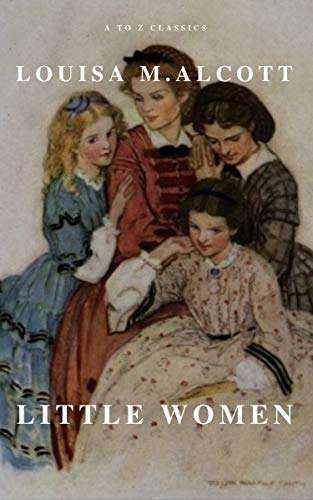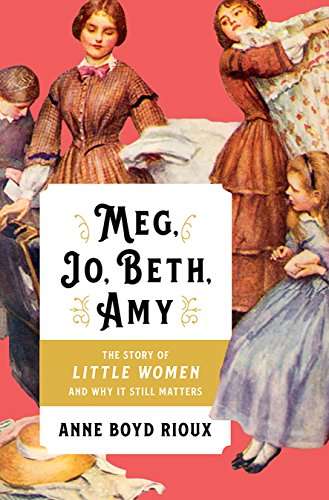Little Women
What can a 150-year-old novel still offer up to readers in the digitally enhanced 21st century? As proof of the timeless appeal of Little Women (Bantam Classics), the new movie in theaters Sept. 28 is the 7th film version of the classic. It’s a modern retelling: Newbie director Clare Niederpruem brings Meg, Jo, Beth and Amy into the present day, with contemporary equivalents of 19th century teenage angst (and a father in some endless military conflict instead of the Civil War.)
Niederpruem previously directed Episode 1 of the television woman warrior fantasy series, “Outcast.” Her “Little Women” actors include Melanie Stone as Meg, Sarah Davenport as Jo, Allie Jennings as Beth, and Taylor Murphy as Amy.

But wait: There’s more! Another cinematic adaptation (that would be No. 8) of Little Women is in the works for next year, directed by Greta Gerwig, fresh off her triumphant directorial debut of “Lady Bird.”
Gerwig’s “Little Women” promises more star power, with Emma Watson, Saoirse Ronan, Eliza Scanlon, and Florence Pugh as The Girls; Meryl Streep as Aunt March, and Timothee Chalamet as that heart-throb next door, Laurie.
Eight movies, plus, over the years, six television versions, two Japanese anime productions, a Broadway play and an opera: Just in time to explain the staying power of Alcott’s book is a new one, Meg, Jo, Beth, Amy, The Story of Little Women and Why It Still Matters by Anne Boyd Rioux (Norton).
Rioux is a professor of English at the University of New Orleans with a penchant for 19th century women writers who, because they were women, didn’t get the attention they deserved. Not so Louisa May Alcott.
Published in 1868 and never out of print, Little Women is often unfairly dismissed as only a girl’s book, but Rioux argues that it’s a timeless story of family resilience, set in a historically chaotic time.
Alcott was a journalist (she wrote about being a nurse in the Civil War) and an established romance novelist when her publisher asked her to write something about girls, something that would have popular appeal. She reluctantly agreed, and didn’t enjoy the work, but produced something that immediately sold 2,000 copies. And kept on selling.
Translated into 50 different languages, Little Women is the story of the ups and downs of the March family. Meg, the oldest sister, hopes to marry and become financially secure. Jo, the writer (and the one who most resembles Alcott), wants fame. Beth, the sweet one, only dreams to stay at home forever. Amy the youngest, has artistic talent. Then, as now, teenage aspirations become adult compromises.
Alcott’s book is partly autobiographical. She had three sisters, and, like the Marches, they grew up in less than comfortable circumstances. Alcott started writing at an early age to help support her family.
Her father was a member of the Transcendental Club of Ralph Waldo Emerson and Henry David Thoreau, but a terrible provider. The family moved 22 times in 30 years, including a stint at a failed utopian commune called (ironically) Fruitlands. There was no artificial light, no hot water, and a vegan diet. One cold Massachusetts winter proved stronger than idealism.
Little Women arrived at a time of transition for women’s roles. One of Alcott’s Transcendentalist mentors was Margaret Fuller, a feminist, journalist and the first woman allowed use of Harvard University’s library. Fuller promoted something called “conversations” for women, informal, informational gatherings to compensate for their lack of formal education.
Every generation comes of age in a different way, but every generation reads Little Women. Some thing never change.
Want more BookTrib? Sign up NOW for news and giveaways!






